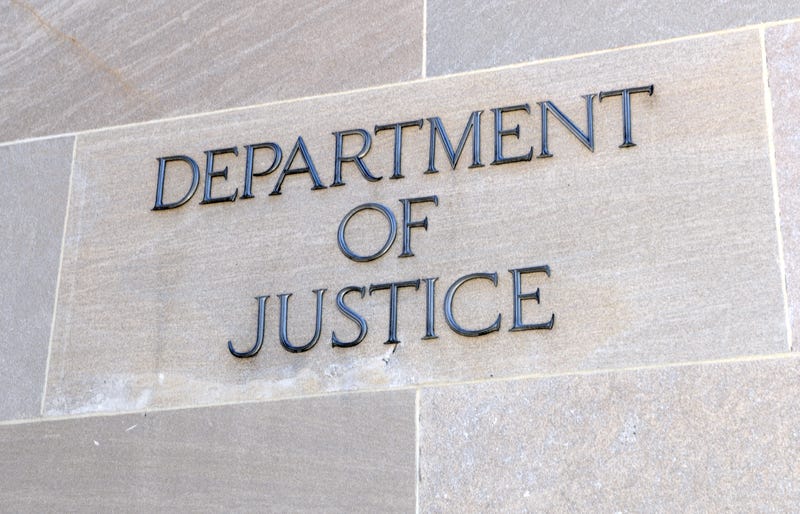
UT Southwestern will pay the U. S. Department of Justice $4.5 million to settle a civil suit over violations of the Controlled Substances Act.
Lapses in record keeping and protocols “allowed hospital staff to divert fentanyl and other dangerous drugs from the hospital,” said U.S. Attorney for the Northern District of Texas Chad E. Meacham
The settlement includes an extensive corrective action plan.
The Drug Enforcement Agency and the U.S. Attorney’s office began a three-year-long joint investigation into UTSW’s handling of controlled substances following the deaths of two nurses who overdosed on fentanyl and died at UTSW’s Clements University Hospital.
On Dec. 15, 2016, a UTSW nurse overdosed on fentanyl diverted from UTSW’s Clements University Hospital and was found deceased in a hospital bathroom. Roughly 16 months later, on April 16, 2018, another UTSW nurse overdosed on diverted opioids, including fentanyl, and was found deceased in a different Clements Hospital bathroom, according to a news release.
“As a DEA registrant, UTSW had certain recordkeeping and reporting obligations which included monitoring all controlled substance activity within its facilities and promptly notifying the DEA whenever a theft or significant loss occurred,” a news release from the Justice Department says.
“The DEA determined that UTSW’s failure to meet certain of these recordkeeping and reporting obligations, along with the medical center’s failure to maintain effective controls to consistently detect and monitor suspected diversion, contributed to the health system’s overall failure to ‘guard against the theft and diversion of controlled substances.’”
“For years prior to our investigation, U.T. Southwestern exhibited an almost shocking disregard for its obligations under the Controlled Substance Act, enabling some employees to steal and abuse prescription narcotics – including powerful synthetic opioids such as fentanyl. We felt that the serial compliance failures we uncovered warranted a multi-million-dollar penalty and a stringent corrective action plan,” said U.S. Attorney Chad Meacham in a statement. “In this settlement agreement, we’re doing everything in our power to mitigate the threat of opioid diversion by outlining protocols above and beyond what’s required by law.”
Court documents say UTSW violated multiple provisions of the Controlled Substances Act over a five-year period. The documents say as a result UTSW employees were able to divert controlled substances from UTSW’s Clements University Hospital and Zale Lipshy Pavilion.
The stepped-up enforcement coincides with the national crisis of opioid addiction and abuse. With the DEA peeking over the shoulder of the medical community, doctors, hospitals, and clinics have been on alert for possible action.
“I see doctors and hospitals that are being contacted by DEA,” said Richard Roper, former Dallas U.S. Attorney. “I think, at least what I’m seeing, is doctors are quick to see they are in compliance.”
UTSW did not immediately return a phone call, but in an e-mail to KRLD news a statement said: “The DOJ/DEA investigation has now concluded with a settlement agreement in which UTSW acknowledges our failure to comply with regulatory requirements and the payment of a fine based on the government’s findings. We have implemented improvements to address identified deficiencies and ensure we comply with all relevant regulatory responsibilities.”
"As part of the settlement, the medical center agreed to take significant steps to mitigate its diversion issues. These steps, outlined in a three-year memorandum of agreement between UTSW and the DEA, include:
- Hiring an external auditor to conduct unannounced audits of controlled substances dispensed via pyxis machines (with a particular focus on auditing fentanyl), with any resulting deficiencies or discrepancies resolved in thirty days, signed off on by the Pharmacist-in-Charge, and provided to DEA;
- Instituting a training program designed to help employees identify symptoms of addiction and signs of diversion, and to understand the threat diversion poses to patient care and professional reputation;
- Creating an employee compliance hotline that permits anonymous reporting of suspected drug diversion or drug impairment;
- Installing security cameras at pyxis machines and providing footage to the DEA upon request;
- Establishing a database of employees who have been discharged or resigned because of drug diversion, and disclosing relevant information to requesting health facilities conducting pre-employment inquiries;
- Permitting DEA personnel to enter UTSW facilities at any time, without prior notice and without a warrant, to verify compliance.
Much of the conduct outlined in the settlement agreement is merely alleged; the agreement does not constitute an admission of liability by UTSW. However, UTSW does publicly acknowledge and admit that theft and significant loss of controlled substances occurred at Clements University Hospital and Zale Lipshy Pavilion; that UTSW failed to notify the DEA of these thefts and losses in a timely manner; and that some of UTSW’s policies and procedures were not consistent with the requirements of the CSA," according to the news release.
LISTEN on the Audacy App
Sign Up and Follow NewsRadio 1080 KRLD

